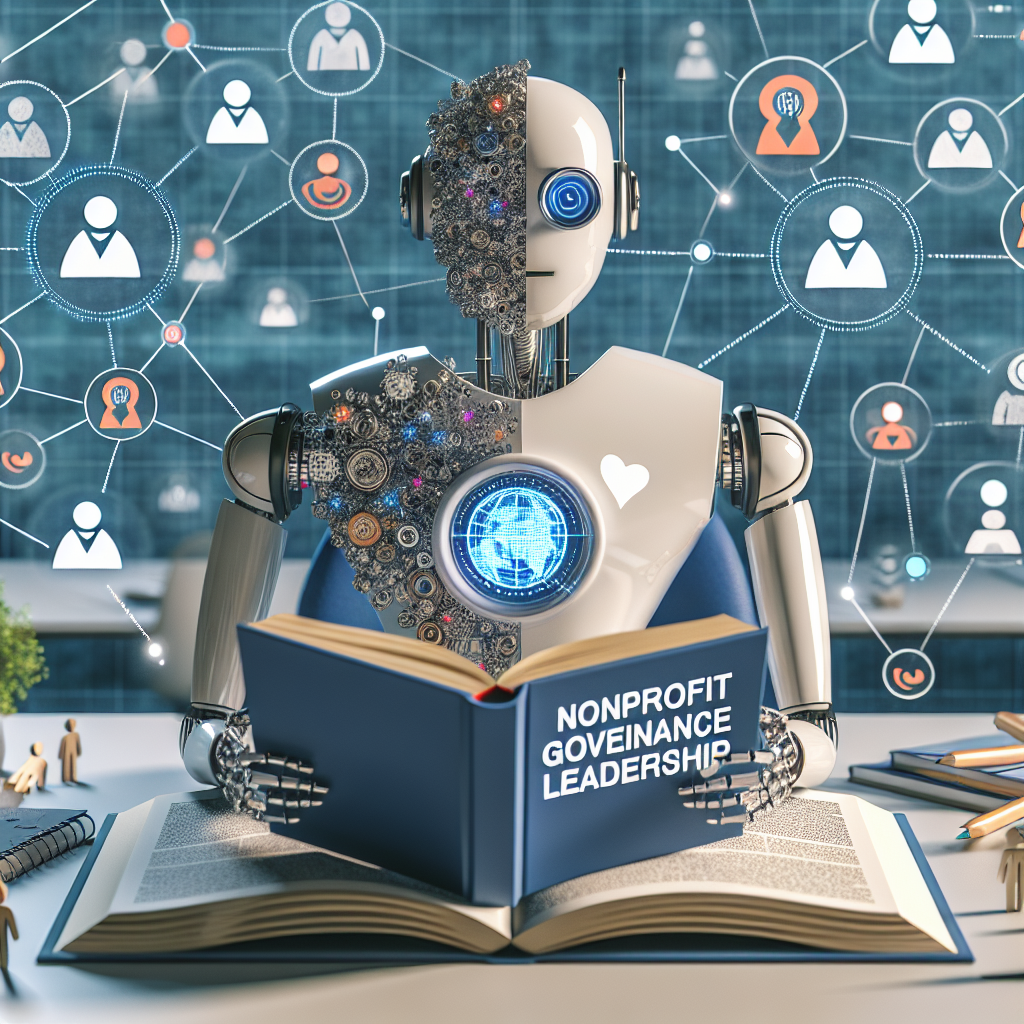In recent years, there has been a growing interest in the role of artificial intelligence (AI) in enhancing nonprofit governance and leadership development. Nonprofit organizations face unique challenges in terms of limited resources, complex stakeholder relationships, and the need to demonstrate impact and accountability. AI has the potential to help nonprofits address these challenges by improving decision-making, enhancing efficiency, and increasing transparency.
AI can play a significant role in enhancing nonprofit governance by providing valuable insights and data-driven recommendations to board members and executives. For example, AI-powered analytics tools can help nonprofits analyze their financial data, track performance metrics, and identify trends and patterns. This information can help nonprofit leaders make informed decisions and develop strategies that align with their mission and goals.
AI can also help nonprofits improve their fundraising efforts by leveraging machine learning algorithms to predict donor behavior, identify potential donors, and personalize fundraising campaigns. By using AI to analyze donor data and segment donors based on their preferences and giving history, nonprofits can create more targeted and effective fundraising strategies.
In terms of leadership development, AI can provide valuable support to nonprofit executives and staff by offering personalized learning opportunities, coaching, and feedback. AI-powered learning platforms can help nonprofit leaders develop their skills, knowledge, and competencies through interactive modules, simulations, and assessments. These platforms can also track individuals’ progress and provide recommendations for further development.
Additionally, AI can help nonprofits enhance their volunteer management processes by matching volunteers with opportunities that align with their skills, interests, and availability. AI-powered volunteer management platforms can streamline the recruitment, onboarding, and scheduling of volunteers, making it easier for nonprofits to engage and retain volunteers.
Despite the potential benefits of AI in enhancing nonprofit governance and leadership development, there are also challenges and considerations that nonprofit leaders need to be aware of. For example, there are concerns about data privacy and security, as well as the potential for bias and discrimination in AI algorithms. Nonprofits also need to consider the ethical implications of using AI in decision-making processes and ensure that the technology aligns with their values and mission.
In order to successfully integrate AI into their governance and leadership development practices, nonprofits should take a strategic approach and involve key stakeholders in the process. This may involve conducting a thorough assessment of the organization’s needs and capabilities, developing a clear plan for implementing AI technologies, and investing in training and support for staff.
FAQs:
1. How can AI help nonprofits improve their governance practices?
AI can help nonprofits improve their governance practices by providing valuable insights and data-driven recommendations to board members and executives. AI-powered analytics tools can help nonprofits analyze their financial data, track performance metrics, and identify trends and patterns. This information can help nonprofit leaders make informed decisions and develop strategies that align with their mission and goals.
2. How can AI enhance nonprofit fundraising efforts?
AI can enhance nonprofit fundraising efforts by leveraging machine learning algorithms to predict donor behavior, identify potential donors, and personalize fundraising campaigns. By using AI to analyze donor data and segment donors based on their preferences and giving history, nonprofits can create more targeted and effective fundraising strategies.
3. How can AI support leadership development in nonprofits?
AI can support leadership development in nonprofits by offering personalized learning opportunities, coaching, and feedback. AI-powered learning platforms can help nonprofit leaders develop their skills, knowledge, and competencies through interactive modules, simulations, and assessments. These platforms can also track individuals’ progress and provide recommendations for further development.
4. What are some challenges and considerations nonprofits need to be aware of when using AI?
Nonprofits should be aware of concerns about data privacy and security, as well as the potential for bias and discrimination in AI algorithms. They also need to consider the ethical implications of using AI in decision-making processes and ensure that the technology aligns with their values and mission.
5. How can nonprofits successfully integrate AI into their governance and leadership development practices?
Nonprofits should take a strategic approach and involve key stakeholders in the process of integrating AI into their governance and leadership development practices. This may involve conducting a thorough assessment of the organization’s needs and capabilities, developing a clear plan for implementing AI technologies, and investing in training and support for staff.

